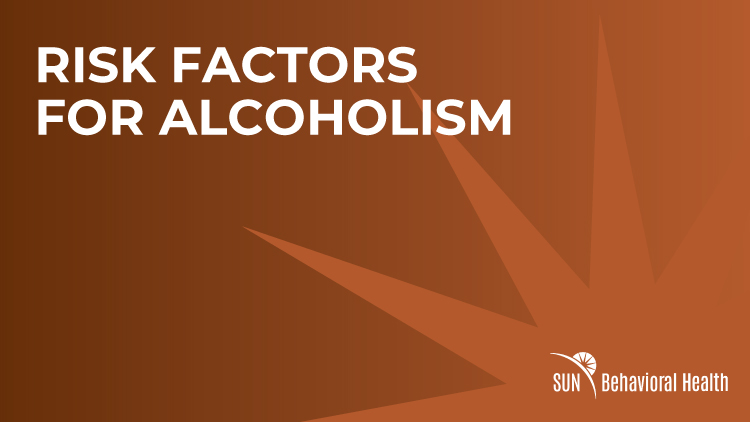Services

In your childhood home in Georgetown, DE, you watched your parents and older siblings enjoy a glass of wine or beer after complaining about stress at work. As you grew up, you saw alcohol as a way to relieve everyday stress. As an adult, you found you would drink when stressed as well. Having watched your family drink alcohol growing up created trauma in your life. Alcohol would help you forget about it.
Over time, you found you needed more alcohol to feel the same effects, and the financial strain of living and buying alcohol began to catch up with you. Still, you couldn’t stop. You reached the point where you bought alcohol instead of groceries, and you felt trapped in a cycle. You knew you needed help but weren’t sure if it was possible.
If this story sounded familiar, you may have experienced some of the risk factors for alcoholism. In 2021, 5% of people in Delaware reported regular heavy drinking. If your family participated in regular heavy drinking, it may have caused trauma that put you at risk for an alcohol use disorder.
At SUN Behavioral Health Delaware, we offer trauma therapy programming that can help you out of an alcohol use disorder and into a new life. Today, we are going to dive deeper into the possible risk factors for alcoholism.
There is no one reason why someone has an alcohol use disorder. Many times, someone might have more than one reason why they developed an alcohol use disorder. Perhaps their parents or friends drank alcohol around them growing up, so they started drinking alcohol early. Maybe you also have a mental health concern, such as depression. In that case, you could have several reasons why someone eventually developed an alcohol use disorder. However, the appearance of these factors in your life does not mean you will have an alcohol use disorder. You are at an increased risk, but the risk is never guaranteed. Also, if you have an alcohol use disorder, all hope is not lost. Recovery is always possible.
One of the potential risk factors of an alcohol use disorder is genetics. However, it is essential to note genetics are complicated and make up a small percentage of the chances you will develop an alcohol use disorder. Just because a family member had an alcohol use disorder does not mean you will inherit it from them. No one gene determines if someone will have an alcohol use disorder or not. Multiple genes can play a role both directly and indirectly. Someone who is of Asian descent, for example, might have a gene that makes them more likely to have nausea and a rapid heartbeat when they drink alcohol. Despite genes possibly playing a role in whether someone will develop an alcohol use disorder or not, it is much more likely that another factor is playing a role instead.
Some psychological factors can play a role in the development of an alcohol use disorder. For example, pre-existing symptoms of depression, post-traumatic stress disorder (PTSD), schizophrenia, or anxiety can make it more likely you will develop an alcohol use disorder. The development of an alcohol use disorder due to a mental health condition occurs because alcohol can make people feel happy. When someone drinks alcohol, dopamine is released into the brain. This increase in dopamine can lessen symptoms of depression or anxiety temporarily. In turn, this results in people wanting to drink more alcohol because they believe it is helping. Alcohol use can also become a coping technique some people might use to self-treat these concerns.
Stress can also lead to someone wanting to drink alcohol more often. Like with mental health concerns, people might use alcohol to cope with daily stress. If a relationship or workplace concern arises, people might use alcohol to try and forget about those concerns instead of addressing them.

Personality may also influence one’s chances of developing an alcohol use disorder. Studies have shown that people who are more outgoing and impulsive are more likely to develop an alcohol use disorder. Aggression and antisocial characteristics may result in experiences where someone might find alcohol to be reinforcing. While aggression is a personality trait that can influence an alcohol use disorder, some studies have also shown that empathetic people might be more likely to drink as well. However, many studies associated with personality factors are inconsistent. Just because you are outgoing, highly empathetic, or aggressive does not mean you will have an alcohol use disorder.
If you have been regularly drinking alcohol for several years, you are more likely to develop an alcohol use disorder. For example, someone who started drinking on or before their 21st birthday is more likely to develop an alcohol use disorder than someone who started drinking alcohol at 31. In 2020, 9,000 people between the ages of 12 and 20 engaged in binge drinking at least once in Delaware. People who consume alcohol more often are more likely to develop an alcohol use disorder. Suppose you are participating in binge drinking every week. In that case, you have a higher risk of developing an alcohol use disorder than someone who only participated in binge drinking once a year.
Peer pressure is a significant factor when it comes to alcohol use disorder. The most common form of peer pressure that most people think about is someone offering you a drink of alcohol. However, it can also look like being around people who regularly drink alcohol. If the people you spend time with or attend a social event with are drinking alcohol, you will be more likely to drink alcohol. Suppose your parents or a sibling used alcohol regularly in your presence. In that case, you are more likely to develop an alcohol use disorder because of your social interactions with them.
The media can also play a role in the development of an alcohol use disorder. Corporations frequently advertise alcohol, portraying it as a relaxing and harmless activity. Other times, they may see people on social media who they look up to drinking often and having fun. So, they might reach for a beer or a glass of wine whenever stressed. Over time, with repeated exposure, it can result in an alcohol use disorder.
Different cultures can have different views on alcohol use, which can impact if the people of those culture groups engage in alcohol enough to develop an alcohol use disorder. For example, suppose you are part of a culture that regularly drinks alcohol and accepts alcohol use. In that case, this regular exposure may make you more likely to develop an alcohol use disorder.
Historically, males are more likely to drink alcohol than females, which puts them at a higher risk of developing an alcohol use disorder. However, in recent years, the drinking levels between men and women are becoming equal.
Having low self-esteem can result in a greater risk of developing an alcohol use disorder. It can stop you from thinking about what you don’t like about yourself. Low self-esteem can make you more likely to want to drink more since it makes you feel better about yourself.
People who have become tolerant of alcohol might have an increased risk as well. An alcohol use disorder might develop because of tolerance, especially if you are drinking more to feel the effects of alcohol. The increase in drinking in one sitting might result in the eventual development of an alcohol use disorder.

While many of these risk factors can result in the development of an alcohol use disorder, it is essential to remember that they don’t mean you will have an alcohol use disorder. However, if you have developed an alcohol use disorder, alcoholism treatment is available, and it can change your life for the better.
Located in Georgetown, DE, SUN Behavioral Health Delaware solves unmet needs in our community. We offer a no-cost care assessment with telehealth options so you can meet with a representative before starting your treatment with us. You will be able to know if our facility is the right choice for you on your recovery journey. For more information or to get started on your treatment today, call us at 302-604-5600.